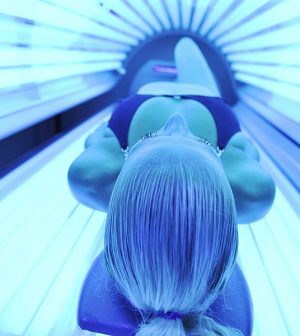- Could Your Grocery Store Meat Be Causing Recurring UTIs?
- Are You Making This Expensive Thermostat Error This Winter?
- Recognizing the Signs of Hypothyroidism
- 10 Strategies to Overcome Insomnia
- Could Artificial Sweeteners Be Aging the Brain Faster?
- Techniques for Soothing Your Nervous System
- Does the Water in Your House Smell Funny? Here’s Why
- Can a Daily Dose of Apple Cider Vinegar Actually Aid Weight Loss?
- 6 Health Beverages That Can Actually Spike Your Blood Sugar
- Treatment Options for Social Anxiety Disorder
Why Do Young Women Get Addicted to Indoor Tanning?

A combination of depression and genetic risk may fuel an addiction to indoor tanning.
That’s the conclusion of a new study out of Georgetown Lombardi Comprehensive Cancer Center in Washington, D.C.
For the study, researchers surveyed nearly 300 women who used indoor tanning beds, sunlamps or sun booths, and analyzed DNA samples. The women were white and between 18 and 30 years of age.
The risk of tanning addiction doubled in those who had mutations in genes related to dopamine activity; dopamine is key to the brain’s pleasure and reward system. Those mutations, coupled with others linked to depression, increased the risk of tanning addiction by up to 13 times.
“By demonstrating that genes in behavioral reward pathways are associated with tanning addiction, we are providing stronger evidence that tanning addiction is a cancer risk behavior in need of intervention,” lead author Darren Mays said in a Georgetown news release. “This finding adds to a growing body of evidence from animal studies and neuroimaging studies that have been done in humans.”
Mays is an associate professor of oncology. He’s now beginning a study into the use of text messages as a way to help young women quit if they are addicted to tanning.
Exposure to ultraviolet light can cause skin cancers, including deadly melanoma. Indoor tanning accounts for 10% of skin cancers, and this year nearly 100,000 Americans will be diagnosed with melanoma.
The report was published online June 11 in the Annals of Behavioral Medicine.
More information
To learn more about the dangers of indoor tanning, visit the American Academy of Dermatology.
Source: HealthDay
Copyright © 2026 HealthDay. All rights reserved.










